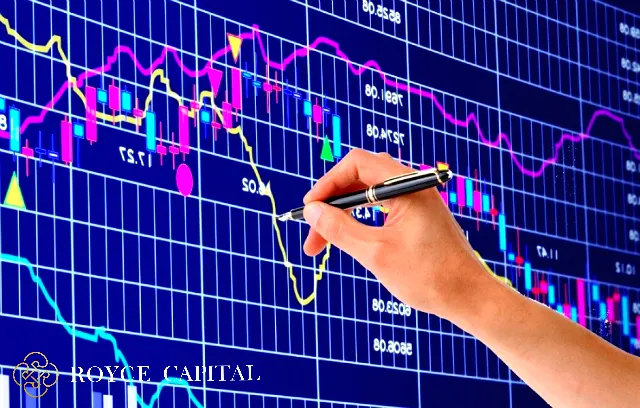
On the other hand, the Vietnam stock market holds a series of large funds, and securities companies are selling stocks for cash holdings as defense. Even so, the VN Index had its strongest April since 2007.
S&P in contrast to VN Index
The global stock market had an unexpected April with a record growth in decades. This not only baffled domestic investors, but global investors also had "a headache" when the market situation showed a wide separation from macro factors that are visibly worsening by the day and the prognosis is still uncertain. In stock investment there is a saying "the market is always right", but when this Covid-19 pandemic is still continuing to rage on, causing thousands of deaths every single day, the global enormity of the situation is staggering. Unemployment has gone up everywhere, production is stagnating worldwide, enterprises are reporting huge losses, and the stock market is showing baffling indications.
US stocks showed the sharpest contrast between macro statistics and market movements. The S&P 500 stock market index, that measures stock performance of 500 large companies listed on the stock exchange in the US, representing the US stock market in April 2020, showed an increase by 12.7% and the recovery from the bottom at 31.38%. By the end of April, this index was only 13.2% below its historical peak just before the Covid-19 pandemic spread across the country. Many investors have questioned whether the 13% discount is reasonable with the obvious negative effects that will continue to reflect on figures in the second quarter, and may even last until the end of the year.
For the Vietnam stock market, optimism only appeared after the implementation of "social distancing". In economic terms, it is not good because all production and business activities are delayed or suspended, though strong measures will help control the pandemic sooner. The VN Index recovered approximately 20% in just 14 sessions, with such a rapid growth rate only appearing twice in the last ten years.
Business results of the first quarter of 2020 showed sluggish production activities. The vast majority of businesses have suffered huge losses. The boom in the stock market in April amid unprecedented risks, also reflects conflict amid long-term and short-term investments. For short term investors, the market movement is absolutely right, as there are no good or bad stocks, only stocks that rise or fall. Hence whether businesses suffer losses or are on the verge of bankruptcy, stock prices will rise or fall irrespective.
For example, HVN shares of Vietnam Airlines, the most typical stock affected by the Covid-19 pandemic, had on 23 April share price at VND 27,800, after rising 56.2% within 16 sessions. This valuation is equivalent to the date of 5 May 2018. The biggest difference is that in the first quarter of 2018, HVN reported a consolidated profit before tax of VND 1,460 bn, when transporting five million passengers in nearly 33,000 flights. Whereas, in the first quarter of 2020, HVN suffered a loss of VND 2,589 bn when close to 100 aircrafts were grounded.
Economy reeling under pandemic
In response to a question as to why the stock market rose so excitedly though it could not find any basis, including future projections to support the current recovery level, Paul Krugman, a distinguished American economist, who was awarded the Nobel Memorial Prize in 2008, said that the stock market is showing signs of excessive money.
The Fed's lowering of interest rate to almost zero, continuously offering tens of thousands of billion dollars in bailouts, and even buying corporate bonds, has flooded the market with cash. As long as the economy is reeling under the pandemic, the "helicopter cash" policy, which implies cash in people's imagination, will remain, and the stock market will increase, which is understandable. However, it is not possible to equate this market situation with a healthy growth economy.
The Vietnam stock market is not at the same level of an inundated cash flow, or huge bailouts like the US. However, reduction of interest rate, credit growth, and most recently the proposal to loosen credit limits for stocks, will also create abundant sources for cheap capital. The loosening of money will cause cash flow in one way or the other to flow into the stock market.
The market in March 2020 also saw a large number of new investors. The number of new stock accounts opened this month have reached 32,140, a record since March 2018 with 41,505 accounts. March 2018 was also a time when the VN Index had reached the highest peak in history at 1,204.33 points. Thanks to this new cash flow, the market has now increased strongly in April 2020, but institutional investors sold shares to increase cash amount.
For example, Vietnam Enterprise Investments Limited (VEIL), the largest fund for Dragon Capital, raised its cash amount by 4.65% in April 2020. Stock trading companies, according to FiinPro, also net sold continuously for the first three weeks in April, exceeding the amount of VND 1,000 bn and foreign investors withdrew nearly VND 6,700 bn in April from HSX, HNX and UPCoM.
The stock market may be moving ahead, but the economy as a whole has still to see recovery in production and business activities of enterprises. So far, the situation remains volatile, uncertain, and even the most optimistic prediction cannot foresee a return to a state of normalcy any time soon. One has to just look around and assess from observation that changes in store signs and display of rental signs, closed and shuttered businesses, and individuals struggling to meet their daily needs, show the current tragic picture quite clearly.




















